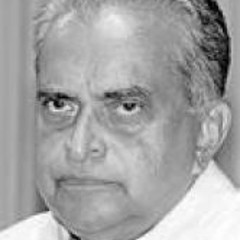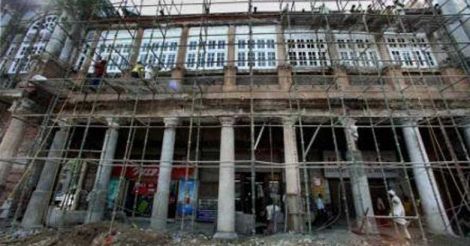A controversy is raging over giving permits to multi-storeyed buildings. The crucial question, however, is about the propriety of denying a “fire NOC” to buildings by citing new guidelines even though they have been constructed after obtaining initial permission under provisions of the existing Kerala building rules.
Before we start work on a house, we draw up a plan and get it approved by the municipality or the panchayat. We stick to the plan and finish the work in a fixed schedule. We approach the local body again for a completion certificate that is necessary for getting electricity and water connections.
What if the officer concerned says that there are new rules in force that require you to leave more space around your building and hence your building cannot be approved.
Obviously, we cannot accept that. The same logic applies to multi-storeyed buildings which are denied permits citing the fire safety provisions of the new National Building Code, even though they have been approved and a preliminary fire NOC was given.
The plan was approved and the NOC was given as per the rules that were in force then.
Isn't it imperative to give the buildings recognition after so much money and time have been spent on them? To deny them approval by citing new rules is nothing short of harassment. An honest officer's insistence on rules will only force builders to do whatever it takes to get the approval, even by bribing.
As someone who had been fighting corruption throughout his career and trying to plug the holes in the system, I would say honesty is not a guarantee against corruption.
If a government officer wants to take a stance against corruption, he has to take a sympathetic approach towards people who come to him with memorandums. Always remind yourself that every law has been framed with the layman in mind.
Interpret rules according to your conscience. Otherwise, an officer is paving the way for corruption with his honesty. The next question is about the builders who apply fresh for permission and fire NOC.
They can be told about the new guidelines and rules at the start of the process. But can the officer decide for himself when the central guidelines come into force and how to interpret Kerala rules in their light. Let officers go through these questions and submit their suggestions to the government. New applicants better wait until the government takes a decision.
The almighty village officer
A poor woman went to a village office for the rectification of a provision in her title deed. The village officer cited some legal provisions and rejected the application. She went to the tehsildar. Even he rejected the application. She went to the RDO, district collector, revenue secretary and even the revenue minister and the chief minister. There was no respite. The village officer's decision remained unchallenged.
She then went to the court. Even the High Court could not help her. Her persistence finally paid off when the Supreme Court ruled in her favour. Twenty years had passed by then. The woman had passed the prime of her life. The old woman fell at the feet of the judge who provided her relief. “Let your son be a village officer,” she said. The judge was flummoxed. Was she blessing him or cursing him? “Do not mistake me, my lord. It took you 20 years to give me justice. The village officer could have given me justice then and there. In my experience, a village officer is the most powerful.” (The writer is former additional chief secretary of Tamil Nadu and former chairman of the Rubber Board)


























Disclaimer
The comments posted here/below/in the given space are not on behalf of Manorama. The person posting the comment will be in sole ownership of its responsibility. According to the central government's IT rules, obscene or offensive statement made against a person, religion, community or nation is a punishable offense, and legal action would be taken against people who indulge in such activities.